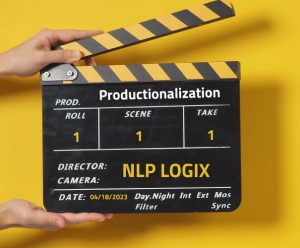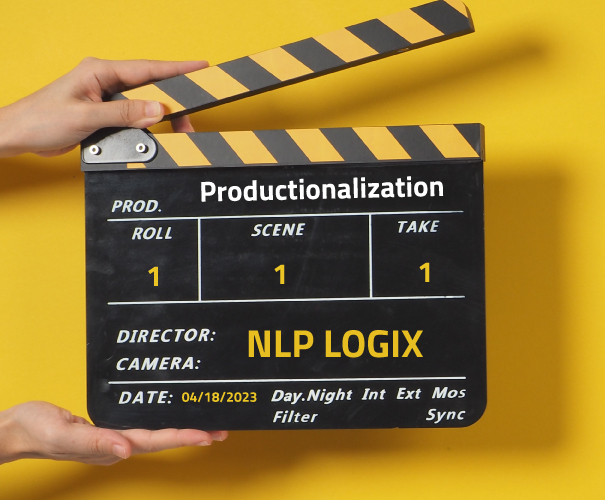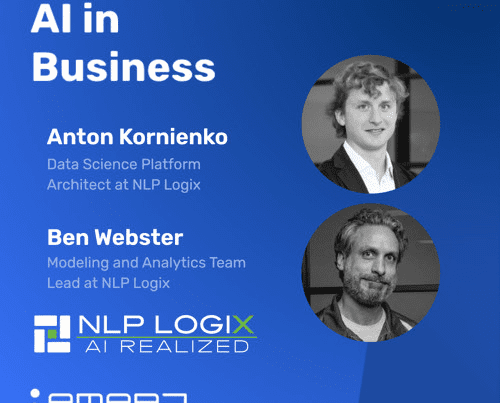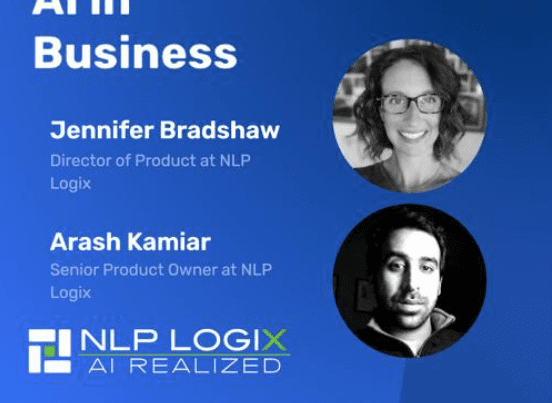Pro-duc-tion-a-li-za-tion | noun:

Productionalization | noun: The implementation of a technology solution into a live production environment. Although not an official word of Merriam Webster, and it is redlined every time it is typed, NLP Logix is focused on productionalization of collaboratively-built technology solutions for client.
The productionalization process begins with the evaluation of the concept, idea, or prototype; this step assesses the feasibility of the product or service, analyzing the target market, and identifying potential risks and obstacles. This evaluation process helps to determine whether the product or service is worth the investment and has the potential to be profitable.
Once the concept has been evaluated and given a thumbs up, a plan is developed for productionalization. The plan will outline the steps needed for a production-ready system. NLP Logix Client Operations Engineer, Michael Carter states, “In this stage of productionalization, NLP Logix works with the client to develop a timeline, budget, and identify resources that are needed to complete the project.”
As a potential path next step, a minimum viable product (MVP)/prototype is developed. This involves creating a simplified version of the solution that can be tested with quality assurance (QA). The purpose of this step is to identify any issues or areas of improvement.
Once the MVP is refined or if the client decides to move straight from concept to full build, the MVP rolls into full-scale production. “Working with the client to build the infrastructure, systems, and processes needed to support solutions at full-scale is pivotal in our success. We create the necessary documentation, training materials, and on-going support systems,” states Carter.
The final step in the productionalization process (NLP Logix defines the last step in productionalization as hypercare) is the hand-off of the solution from the product development team to the support team – to push final product to go-live. Carter states “We live for those go-live, productionalization moments when our clients get to start using the jointly built solutions. Within Client Operations, we support all of the solutions that are in production for clients.”
The productionalization process requires a diverse set of skills and expertise; this includes knowledge of software development, engineering, project management, and business strategy. Carter states, “The Operations team is highly collaborative, with plenty of opportunities to collaborate and problem solve. By working together, we transform our client’s ideas into successful, tangible offerings, and provide value on those products.”
Learn how write your own productionalization success story here.





